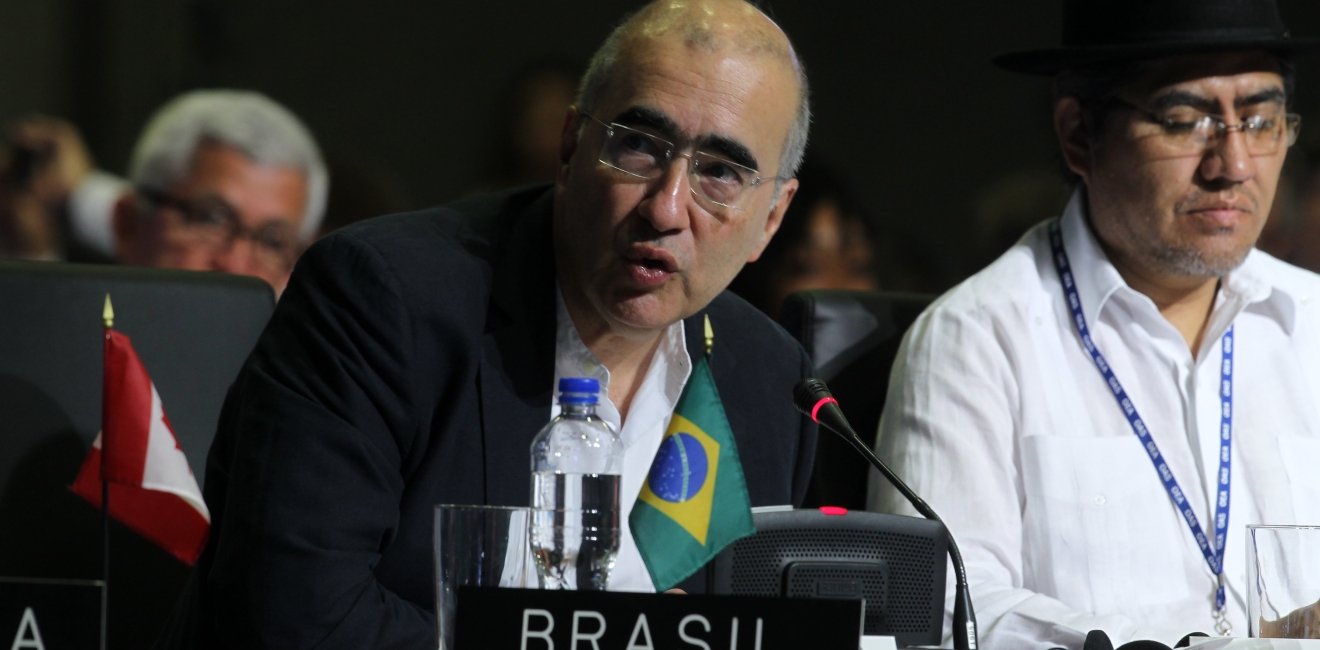
A blog of the Brazil Institute

Brazilian Deputy Foreign Minister Marcus Galvão addressed the General Assembly of the Organization of American States (OAS) on June 20th, and directly expressed Brazil's desire for an end to the crisis in Venezuela and the restoration of the country's democracy. Below is a translation of his remarks, which can be viewed in the original Portuguese here.
Opening Statement:
“[The OAS] must exercise an important role in offering support and solutions for the grave political, social, economic, and humanitarian crisis in Venezuela: a crisis that ultimately, as we know, needs to be resolved by the Venezuelans themselves. Restoration of the democratic order, the rule of law, the separation of powers, and the respect for human rights in our sister-nation is an objective to be defended and promoted with persistence by all of us.
Brazil, together with other countries in the region, reiterated yesterday once again its position regarding the issue in a communiqué in which we expressed our desire for the liberation of persons imprisoned for political motives, an end to arbitrary detentions, and to the judgment of civilians by non-civilian courts.”
"In Venezuela, to the contrary, the lack of liberty and of independent institutions only exacerbates the country’s serious problems and the suffering of its people."
In response to a rebuttal by the Venezuelan delegation:
“To respond quickly, perhaps in this case the representative of Venezuela should have followed the instructions of his chancellor, and not have intervened. Because you know perfectly well that there was no coup in Brazil. And you know perfectly well the change of government in Brazil occurred by way of a constitutional process conducted by independent institutions.
But I am going to have to take a little bit of time here, Mr. President. Brazil has chosen democracy, which is a regime in which the people chooses the path of its own development and the way it deals with the problems that all countries face. Among those, as you mentioned, is the problem of corruption.
In Brazil, as a matter of fact, these problems, including the problem of corruption, are visible and are being faced because, in Brazil, there is democracy. In Venezuela, the visible problems have occurred because, in Venezuela, there is no democracy. It is here that the difference between Brazil and today’s Venezuela resides. Brazil has a society that is free to protest, to mobilize, to criticize, and to charge. Brazil has an entirely free press to inform and control. Brazil has a police force that is free to investigate whomever it wants.
In a democracy, my dear Venezuelan delegate—in a true democracy—no one is above the law and the consequences of breaking the law. In Brazil, we have a free and strong Public Ministry that can investigate and indict. In Brazil, we have an independent, free, and strong judiciary that can judge and sanction. In Brazil, we have a legislative that is free to legislate, debate and exercise control. This is a description of what truly exists in Brazil, and of that which is, unfortunately, neither true nor present in today’s Venezuela. I know that you know all of this and that, as a duty of your office, you prefer or are obligated to maintain a discourse that is disconnected with reality.
In conclusion, Brazil does face problems and challenges as all countries do, but it faces them democratically through strong and independent institutions. In Venezuela, to the contrary, the lack of liberty and of independent institutions only exacerbates the country’s serious problems and the suffering of its people."
In response to a second rebuttal from the Venezuelan delegation:
"It is frightening that the representative of Venezuela wants to teach Brazil a lesson on democracy. This demonstrates that the Venezuela’s representation has lost not only contact with reality but also, I regret to say, its sense of the ridiculous.”
Image by Organization of American States
Author

Explore More in Brazil Builds
Browse Brazil Builds
They're Still Here: Brazil's unfinished reckoning with military impunity


